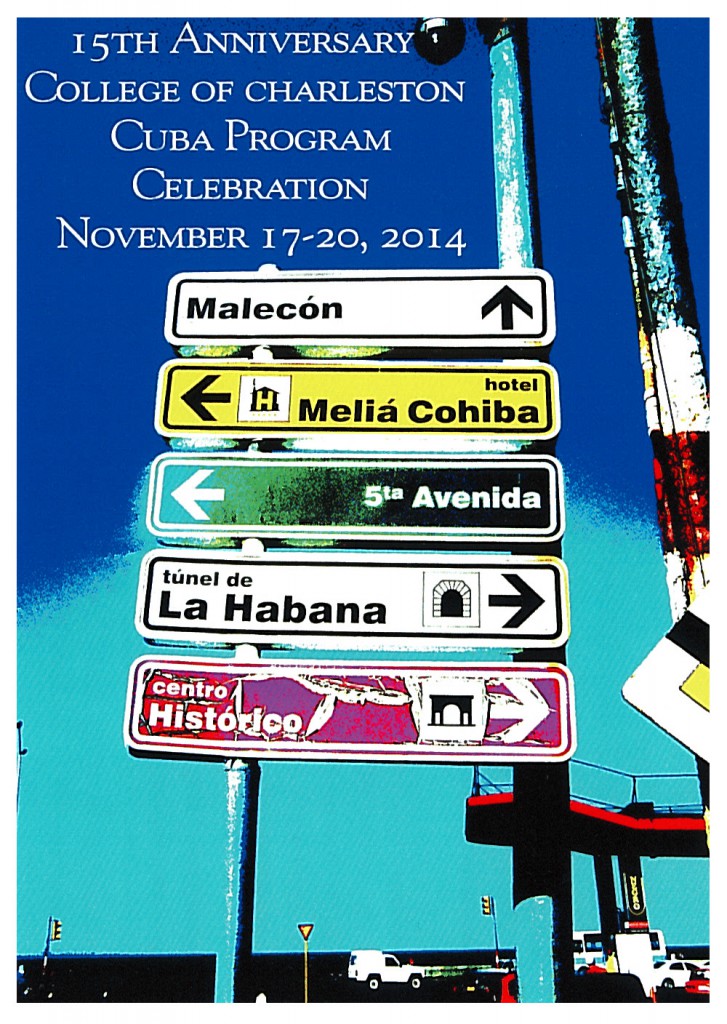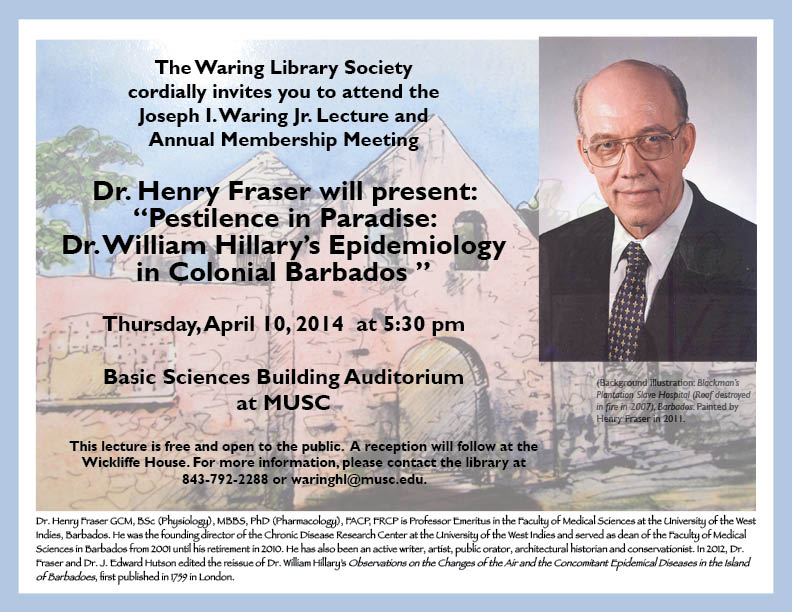After 15 Years, Cuba Study Abroad Program is as Vital as Ever
When the College of Charleston launched its study abroad program in Havana, Cuba in summer 2000, travel and relations between the U.S. and Cuba were already difficult. Maintaining the program, which sends about 12 students to Havana each spring, has been challenging and often unpredictable, but it has always been rewarding.

Students studying abroad in Havana. Photo by Britton Holmes.
“My time in Cuba impacted me in more ways than I can count,” said Britton Holmes, a junior international studies and political science double major who studied abroad in Havana during the spring 2014 semester. “The culture is so rich, whether it’s the music, the art, the dance, etc. The people love being Cuban. They’re proud of their culture and they want to share it with everyone.”
The program that Holmes speaks of, though, is vastly different than the program the first 100 students to study in Havana experienced. In 2000, when International Studies Department Chair Douglas Friedman and Professor Emeritus of Hispanic Studies Jose Escobar launched the program with 20 students, participants spent four weeks and lived in what was essentially a hotel. When the embargo in Cuba was tightened in 2004, it required that those visiting with an education license must spend a minimum of 10 weeks. That was when the program went from a summer study-abroad experience to a full semester.

Photo taken in Cuba by Douglas Friedman
These restrictions caused many universities to end their own programs in Cuba, but the College’s commitment to sharing the educational and cultural opportunities in Cuba kept the program alive. “In 2004 there were more than 100 universities with programs in Cuba,” Friedman said. “In 2005 there were three.”
2007 marked the first spring semester in Havana – after attempting a hurricane-filled fall semester in 2005 – and the program has remained in the spring since. Students now live in apartments on the outskirts of Havana, allowing them easy access to the city without the round-the-clock distractions of Havana in such close proximity. It also makes students clean up and cook for themselves, providing them a more immersive experience.
“We’ve progressively tried to make the experience more genuine,” Friedman said. “Now we’re able to rent apartments for short-term use, and students have full kitchens – they’re actually living there. They have to deal with the same food shortages that Cubans deal with, they have to learn the different currencies, and they have to learn to navigate Havana. It’s a much more immersive experience.”
Holmes, who lived in the apartments, is a testament to this. “There is not a better place I could think of to get a full experience of pure Latin American culture,” she said. “I feel like a gained a Cuban family as well as a College of Charleston family.”
Holmes’ account of her time in Havana reflects the many unique opportunities provided through the program – not only is the Cuba program very small, allowing for students to form a tight-knit community, but also living in an embargoed country for 11 weeks is something that few Americans can experience.

Photo taken in Cuba by Britton Holmes
This is unlike any of the other programs we have,” Associate Provost for International Education Andrew Sobiesuo said. “In terms of the experience, the facilities and the adjustment that students have to make. They really learn to appreciate the advantages they have as Americans when they see what Cubans go through on a daily basis. It makes their experience much richer.”
Becoming immersed in the Cuban lifestyle can be jarring for some students. Holmes described ideal participants as “adventurous people who like to experience new cultures.” She went on to say that people interested in political science and/or Latin American history, culture and society as well as those interested in vintage cars, architecture, dancing and nightlife would also enjoy the program.
The next round of students considering studying abroad in Havana have a few months to apply – the deadline is December 1, 2014 – and in the meantime Friedman and Sobiesuo are working to get the program director in Cuba, Humberto Miranda, to Charleston in November for a 15th anniversary celebration and to teach his usual express II courses, Social Movements in Comparative Perspective and Cuban Politics and Society.
During his annual visits to Charleston, Miranda helps recruit students for the program both by providing information on the fascinating classes taught by his fellow University of Havana and Instituto de Filosofia faculty members and telling students about the unique and storied culture that awaits them in Cuba.
For Holmes, the description of daily life and friendly locals in Cuba was the selling point. “Their culture is super inclusive… I feel really lucky to have been able to experience it.”
 The Program in Latin American and Caribbean Studies (LACS) recently recognized LACS-Spanish double major Leasette León with its Outstanding Student Award for having the highest cumulative GPA in the program, a testament to the first-generation student’s dedication to excel in college.
The Program in Latin American and Caribbean Studies (LACS) recently recognized LACS-Spanish double major Leasette León with its Outstanding Student Award for having the highest cumulative GPA in the program, a testament to the first-generation student’s dedication to excel in college.








